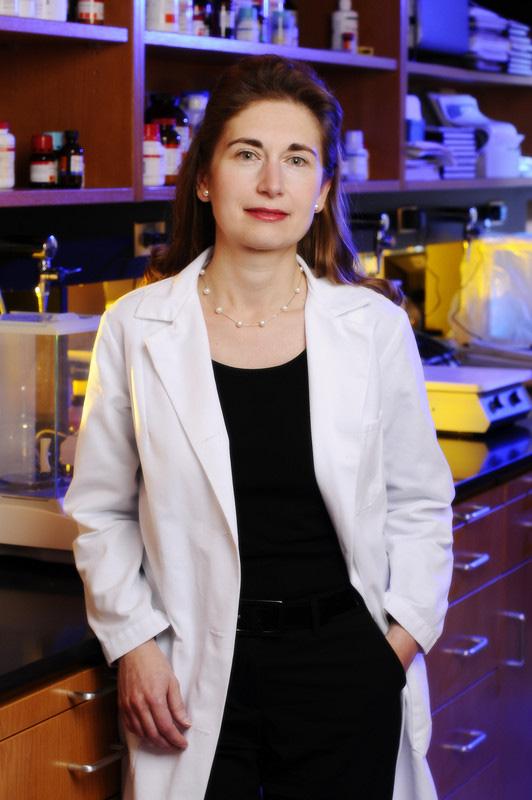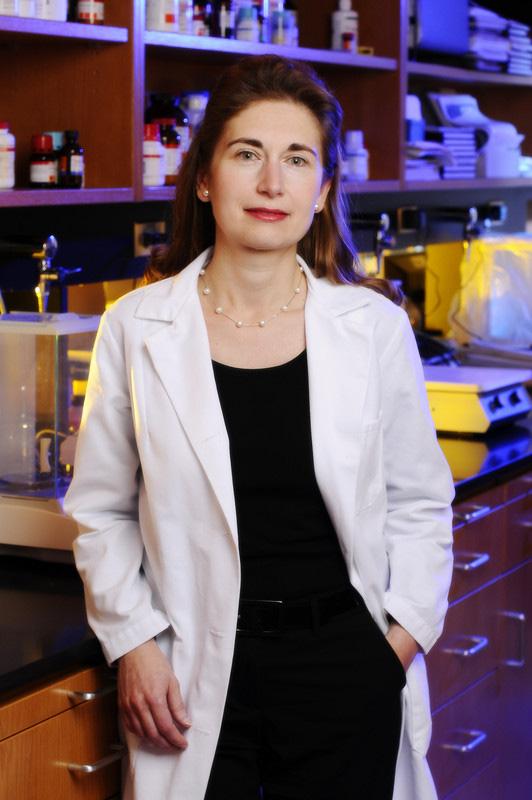
Credit: UAB
BIRMINGHAM, Ala. – Researchers at the University of Alabama at Birmingham Comprehensive Diabetes Center have discovered a safe and effective novel therapy to reduce insulin requirements and hypoglycemic episodes in adult subjects with recent onset Type 1 diabetes by promoting the patient's own beta cell function and insulin production — the first such discovery to target diabetes in this manner.
The findings, published today by Nature Medicine, reveal that regular oral administration of verapamil, a common blood pressure medication first approved for medical use in 1981, enabled patients to produce higher levels of their own insulin, limiting their need for insulin injections to balance out their blood sugar levels.
The randomized, double-blind, placebo-controlled human trial identified verapamil as a safe, effective, and promising therapy — a groundbreaking finding in the field of diabetes research.
"The data collected from our clinical trial gives us every indication to believe that individuals with Type 1 diabetes have the promise of a treatment approach that would reduce their external insulin requirements and improve their blood sugar control and quality of life, thanks to the effects that verapamil has in promoting the body's own beta cell function," said Anath Shalev, M.D., director of UAB's Comprehensive Diabetes Center and principal investigator of the trial. "While this research is not an end-all cure for Type 1 diabetes, these findings are getting us closer to disease-altering therapies that can enable individuals with Type 1 diabetes to have more control over their disease and maintain some of their body's own insulin production."
In 2014, Shalev's UAB research lab discovered that verapamil completely reversed Type 1 diabetes in animal models and sought to test the effects of the drug in human subjects in a clinical trial, funded by a $2.1 million grant from the JDRF. Verapamil has been Food and Drug Administration approved and available for prescription for the treatment of high blood pressure for more than three decades. However, Shalev's research marks the first time that the drug has been tested for safety and efficacy in treating Type 1 diabetes.
Type 1 diabetes occurs as the result of one's immune system attacking the beta cells in the pancreas that produce insulin to regulate and maintain optimal blood sugar levels. When beta cells are being destroyed, a person's ability to produce insulin declines, causing blood sugar levels to rise and making the person more and more dependent on external insulin. The UAB clinical trial discovered that when a patient takes verapamil, beta cell function is preserved, enabling the body to produce more of its own insulin. This lessened the clinical trial participants' reliance on external insulin, which all individuals with Type 1 diabetes must have to effectively regulate their blood sugar levels.
"At JDRF, we are excited and encouraged by the recent findings from the UAB Comprehensive Diabetes Center's clinical trial. This data has the potential to change how we think about treating and ultimately curing T1D," explains Andrew Rakeman, Ph.D., assistant vice president of research at JDRF. "We look forward to continued clinical studies that will build on and confirm these findings, expanding to additional patient populations and guiding how, when and in who verapamil might have the most impact in T1D."
The verapamil clinical trial monitored 24 patients age 18 to 45, each over the course of one year. Eleven patients received verapamil and 13 received placebo. All clinical trial participants were diagnosed with Type 1 diabetes within three months of their start in the trial and continued with their prescribed insulin pump therapy throughout the duration of the study. Researchers monitored the placebo and verapamil groups' total daily dose of insulin, the amount of insulin produced, the percent change in insulin production, and their HbA1C levels. In addition, the number of hypoglycemic events that the patients experienced were recorded, and the percent of time each patient registered in healthy blood glucose ranges were analyzed using a continuous glucose monitoring system.
"Although this is a smaller sample group, our trial results give us promise that subjects with Type 1 diabetes have therapy options and that we are nearing a more effective way to deal with this disease," said Fernando Ovalle, M.D., director of UAB's Comprehensive Diabetes Clinic and co-principal investigator of the study. "Beyond verapamil allowing subjects with Type 1 diabetes the ability to live a life with less external insulin dependence, these findings will impact the quality of life that they can have. Hopefully, by improving overall blood sugar control it will also limit their risks for other comorbidities, including heart attack, blindness, kidney disease, and more."
While this study specifically addressed findings in adult subjects diagnosed within three months of the trial's start, Shalev notes that future long-term studies are needed to help determine the effect of verapamil on both the pediatric Type 1 diabetes population, and individuals with Type 1 diabetes who have been living with and/or diagnosed with the disease longer than three months. Furthermore, verapamil's effects on Type 2 diabetes have not been tested or studied in prospective controlled trials; Shalev said and future studies that explore the potential for this regimen to positively impact Type 2 diabetes are therefore also needed. However, in mouse models of Type 2 diabetes and in recent epidemiological studies verapamil use has been associated with lower risk of developing Type 2 diabetes and with better blood sugar control.
"This trial's results affirm that we are on the right track and are entering a new phase of discovery as it relates to this disease," Shalev said. "Diabetes impacts more than 30 million people in America alone, and hopefully our breakthrough will ultimately lead to approaches that can help improve the lives of all those affected by this disease."
###
Media Contact
Savannah Koplon
[email protected]
205-641-1211
http://www.uab.edu
Original Source
http://www.uab.edu/news/research/item/9585 http://dx.doi.org/10.1038/s41591-018-0089-4





